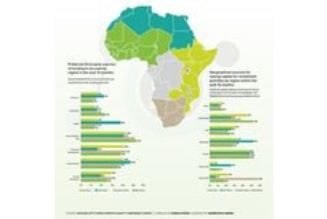Columnists
Beware the politics of land in Kenya’s major cities and towns
Thursday July 06 2023
The 17.3-kilometre Nairobi Western bypass. FILE PHOTO | DIANA NGILA | NMG
Let me conclude the message I started in my last article on the Kenya Urban Forum 2023 held in Naivasha mid-last month.
The major cities in this country have accumulated huge amounts of land records with time. Such large numbers of manual land records overwhelm.
These cities, along with big municipalities, are encouraged to consider harnessing modern technology. They need to consider developing computer-driven land information management systems.
In developing such systems, they’ll need to liaise closely with the national survey and mapping agency, Survey of Kenya.
This will help to ensure that their systems are based on a uniform survey reference framework, and run on protocols and data formats amenable to data exchange with the national land information management system, known as ardhisasa, which is under development.
It was also observed that counties need to develop land banks for their future needs. The County Governments Act empowers county governments to lease or acquire land for their projects as desirable.
In this regard, counties may consider prioritising the acquisition of land for the construction of bypasses to ease traffic gridlocks which are becoming a common feature in the rapidly growing urban centres.
Embu town, which hosted this year’s Madaraka Day fete, helps to illustrate this.
To secure the stadium which is next to the Nairobi-Meru highway, cross-town traffic had to be diverted. Due to the absence of an appropriate bypass, the efforts to divert traffic off the highway were quite constrained, and travellers suffered substantial delays as a result.
Many towns may suffer a similar fate were they to host major national or international events. Counties, however, pointed out their limitations in this regard, including the huge amounts of money required for compensation in today’s land market.
Even as I observed that the costs of land will continue to rise, and it’s therefore prudent to identify and purchase land early, the National Land Commission interjected, seeking to know why county governments always take the option of compensating for leasehold land.
Why, they were challenged, wouldn’t they use the forfeiture clauses to determine contracts with lessees in breach of the conditions of grant?
A key condition, which has been widely breached, requires that such land be developed within a specified period.
Urban managers were also urged to beware of the politics of land, which has the capacity to delay or stop development projects.
Such politics is manifest whenever issues relating to boundary delineation, forced evictions, repossession of grabbed land and the development or review of valuation rolls have to be managed.
In some jurisdictions, the transparency that comes with modern land information management systems may be unwelcome, and politics may be used to defeat their development or maintenance.
These tools could pose subtle threats to vested interests. It’s therefore upon every urban manager to develop a good nose for such politics and navigate it accordingly.
Competent land professionals around them may be helpful.
The writer is a consultant on land governance. [email protected]









